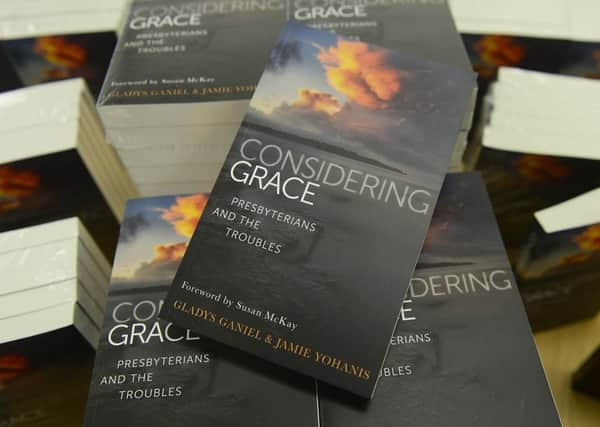GP who tried to help people through dark times


The final story comes from Helen, a GP at the border, who witnessed first hand the effects the conflict had on her patients:
“I can think of one elderly farmer whose only son had been shot in front of him, the son who was going to take over the farm. That father never really recovered. Then we were getting people who belonged to the UDR who were living in very difficult circumstances, always watchful of who was about, what was under their car. Some of them came to breaking point and that was when we were called. One man who belonged to the security forces was stationed in a town where their premises were constantly besieged, but they were required to do regular patrols in vehicles. One afternoon he came to me visibly shaking; shortly before his vehicle had been blown up. He said, ‘I have to go back in the morning and do the same thing all over again’. He stuck that for decades.”
Advertisement
Hide AdAdvertisement
Hide AdUnderstanding of and access to mental health care was ‘very poor’ at that time.
“If you mentioned psychiatric help, some people had misconceptions about what could be provided and the stigma it would have for them within their workplace or family circle. There were no community mental health teams in the way there are nowadays. Unfortunately, to try and see someone over the most critical and difficult crisis you often had to use medication. But you knew you hadn’t the back-up in the health service and in the forces to cope with the tremendous workload.”
Helen’s hometown was bombed many times. Her mother’s house sustained significant damage on several occasions. One explosion happened while Helen was at work. When she heard about it, she rushed home.
“I found a policeman and said, ‘Is it possible I could go and see if my folks were still alive?’ After a while he came back, and he took me up. I saw the devastation of our house. Then down the back garden I found my mother and sister-in-law and the baby. The baby wasn’t expecting the bang, naturally, and it stopped breathing. Her mother had the presence of mind to turn the child upside down and give it a bang on the back and it started breathing again.”
Advertisement
Hide AdAdvertisement
Hide AdThe attacks did not make her angry, but sad – and grateful that in her case, the damage was limited to bricks and mortar rather than flesh and blood.
She was reminded of the danger every time she came home from work in the evenings. To curtail car bombings, police erected barriers on the road. This meant she couldn’t get her car home. “I used to park my car in a friend’s house [beyond the barriers] and walk half a mile with my doctor’s bag at midnight or one o’clock in the morning.”
Later, the barriers could be opened at night, but Helen had to stop at a regional police station to tell them when she would be arriving at a barrier, so they could let her through.
Helen recalled that one Presbyterian minister in her area “was very much tuned in with what was going on and was one of those people who was alongside his flock”. He contacted her practice when he thought people needed professional help coping with what had happened to them and asked for a doctor to visit them. Helen said it was difficult for PCI to do much publicly, especially with Rev Ian Paisley criticising its every move.
Advertisement
Hide AdAdvertisement
Hide Ad“It’s very hard to see how the Presbyterian Church could have done much more apart from saying, ‘We’re with you, we’re thinking of you, and we’re praying for you’. Those who did try, in the background, to meet with IRA people were vilified. They were trying to be peacemakers, but at that time the anger in people’s hearts was such that those people were not given support. There were people [inside and outside PCI] who supported Paisley and they felt there was to be no compromise.”
Some members of Helen’s congregation led the Ulster Worker’s Council strike (1974) in her area, a protest against the Sunningdale Agreement and a perceived sell-out to Irish nationalism.
“We had one or two rather militant people in our congregation who set themselves up as the people to lead the action. I was working [in another town], and I was approached. Petrol was rationed by them, and we were being told the government didn’t matter, they were taking over. We were coming out of church. They said, ‘Doctor, do you need any petrol?’ I said, ‘No, thank you. If I run out of petrol, I will cycle to work rather than have you dictate to me what I’m to do’.”
This act of defiance reflected the life Helen lived, day-by-day. “We were obliged to minister to everybody: our Catholic patients as well as our Protestant patients. I hope by our actions we did as much as we could to help people in dark times.”
• ‘Considering Grace’ by Gladys Ganiel and Jamie Yohanis, published by Merrion Press, is available in most bookshops priced £14.99